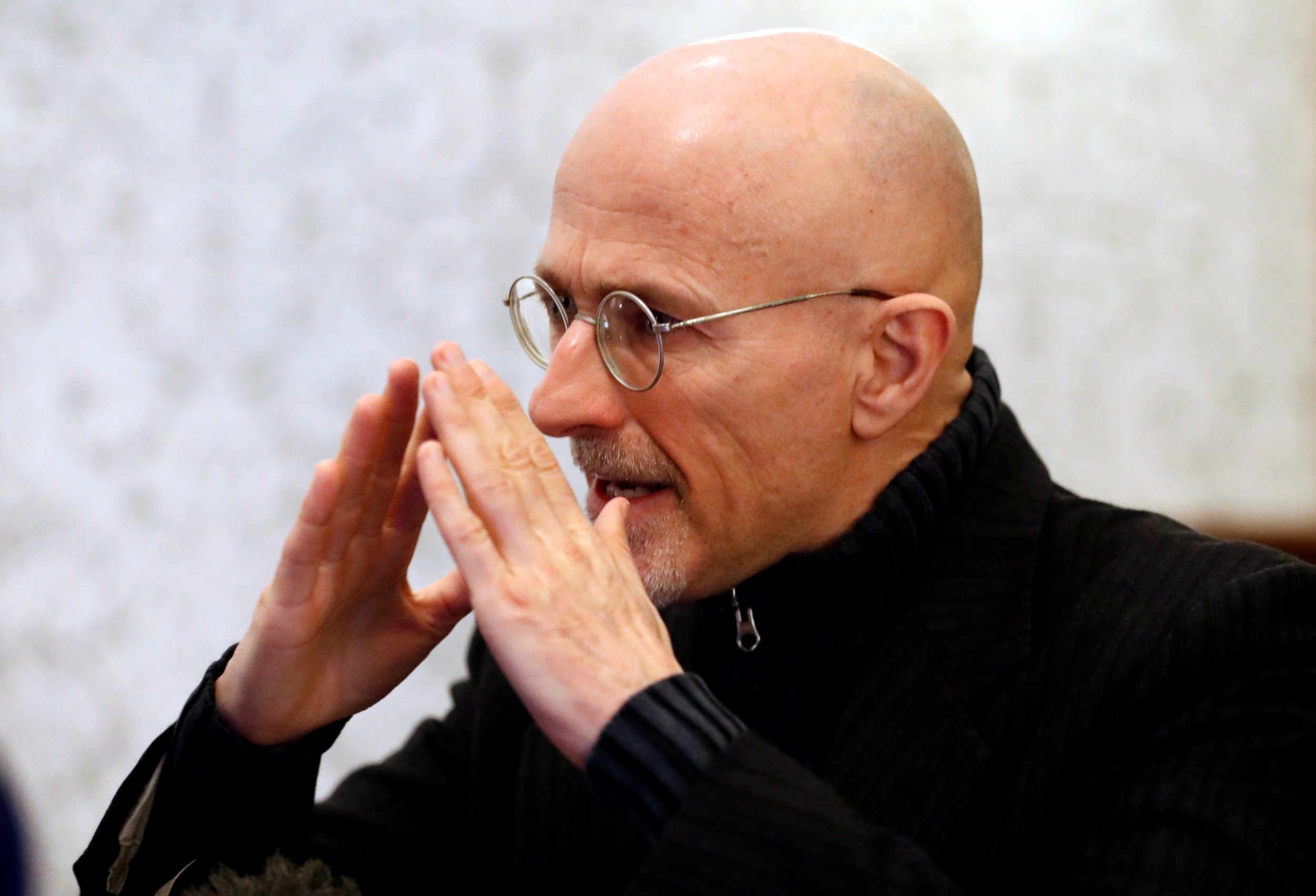
Updated | Scientists have attached the head of a smaller rat onto a larger one in the latest study by controversial neurosurgeon Sergio Canavero.
Images, which can be seen on Motherboard, show how three rats were used for the operation. One was the donor, the other recipient while the third provided the blood supply between the two. The resulting surgery shows how the smaller, donor rat's head and forearms have been attached to the larger recipient's.
Researchers released details of their findings in the journal CNS Neuroscience and Therapeutics , explaining how they developed a "bicephalic [having two heads] model of head transplantation" in order to study potential problems relating to insufficient blood flow to the brain and immune rejection.
The study, whose authors include Italian neurosurgeon Sergio Canavero and Xiaoping Ren from the Harbin Medical University, China, claims to show how a third rat can be used to "guarantee" blood supply during the operation. The donor rat was connected to the third rat via a silicone tube. This tube passed through a pump which provided a blood supply to the donor brain tissue during the transplant.
Researchers say there was no injury to the donor brain tissue and that following the operation, the donor had pain and corneal reflex. Concluding, they say that having a pump application during surgery provides a blood supply to the donor brain tissue, while the silicone tube protects it from hypothermia by regulating the temperature.
Canavero and Ren have carried out a series of head transplant experiments; in September 2016, the pair released three studies to New Scientist in which they claimed to show successful operations.
In one, the researchers claim to have severed 90 percent of a dog's spinal cord before re-attaching it. In another, scientists used graphene nanoribbons to create a scaffold for neurons to grow along. The team claimed there was electrical activity the day after they cut the spinal cord, but most of the mice then died in a flood so follow-up observations were lacking. None of these papers were peer reviewed.
In January 2016, Canavero announced a successful monkey head transplant had been carried out by Ren in China. Images showing the head of a monkey stitched onto another were released, and Canavero claimed it survived for 20 hours without neurological damage before being euthanized for ethical reasons.
Canavero is currently planning to carry out the world's first human head transplant in December 2017. Initially, the first patient was to be Valery Spiridonov, a Russian man who suffers from Werdnig-Hoffman's disease—a degenerative muscle wasting condition. However, it has now been announced—for reasons unknown—that Spiridonov will not be the first head transplant patient. Instead, Canavero said they will be a Chinese national who has yet to be selected.
"[There are] various candidates," he said in a statement. "Which is not surprising, considering that a high number of volunteers from all over the world came forward. The final decision is only made immediately prior to the operation, as it also depends on the body donor, who has to be compatible with the receiver in many ways."
The proposal has been met with huge criticism from the scientific community. Along with the major ethical issues such an operation raises, many have said Canavero's technique will not work and there is not enough evidence to suggest an operation will be a success. Furthermore, should the operation fail, Spiridonov could technically be left conscious in a huge amount of pain.
When Canavero first announced the plan in 2015, Hunt Batjer, president elect of the American Association for Neurological Surgeons, commented: "I would not wish this on anyone. I would not allow anyone to do it to me as there are a lot of things worse than death."
This article originally stated that Canavero was currently planning to carry out the world's first human head transplant in December 2017 on terminally ill Russian patient Valery Spiridonov. It has now been updated to say Canavero will be performing the operation on a Chinese national.
Uncommon Knowledge
Newsweek is committed to challenging conventional wisdom and finding connections in the search for common ground.
Newsweek is committed to challenging conventional wisdom and finding connections in the search for common ground.
About the writer
Hannah Osborne is Nesweek's Science Editor, based in London, UK. Hannah joined Newsweek in 2017 from IBTimes UK. She is ... Read more
To read how Newsweek uses AI as a newsroom tool, Click here.








